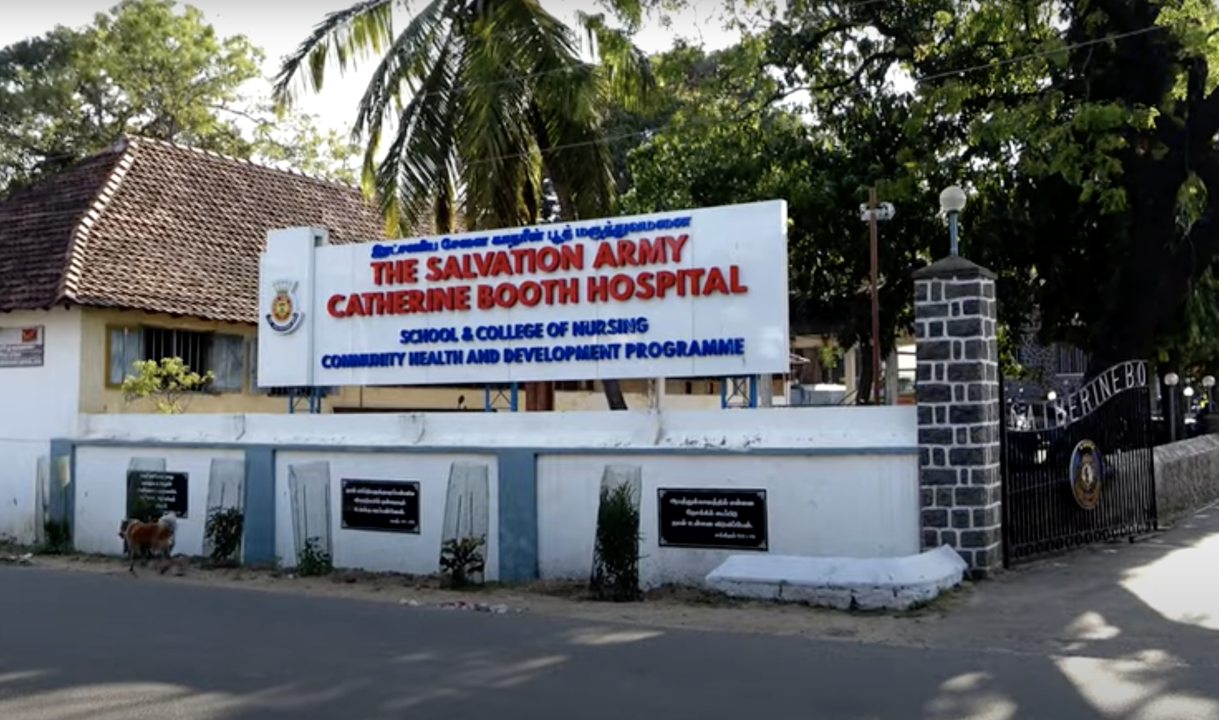India: Supporting Families Affected by HIV and AIDS
The Salvation Army Community Health and Development Programme (CHDP), based at The Salvation Army’s Catherine Booth Hospital (CBH) in Nagercoil, India, works tirelessly to save and improve the lives of impoverished families affected by HIV. Mrs. R*, from a rural village in the area, has been living with AIDS for one and a half decades. Families affected by HIV in these communities often fall deeper into poverty as the breadwinner becomes sick and medical bills mount. After Mrs. R’s husband passed away five years ago, she began work as a coolie, or low-wage laborer, but her income was only enough to cover their daily bread. As a result, her two sons had to drop out of school. With the help of CHDP, the boys were able to enroll in a polytechnic college. The CHDP field organizer arranged all the resources they needed, including uniforms and books. Now they can look forward to successful lives and benefit their family for generations to come.

The Problem
The Salvation Army Catherine Booth Hospital (CBH) began a trailblazing effort in 1993 to encourage, assist, and support some of the thousands of people living with HIV and AIDS in India. When HIV first became prevalent in Indian society, those who contracted the virus experienced desolate isolation and brutal discrimination. Although attitudes have changed in the past 30 years, people in India who live with HIV can still face grueling day-to-day challenges. The Salvation Army Community Health and Development Programme at CBH saw this crisis and responded swiftly by implementing a program specifically for widows and children affected by HIV much like Mrs. R’s family.
The Solutions
The most recent of these efforts began in November 2021. One year after the conception of the Integrated Health Initiative Project, there was a total of 186 villages around Nagercoil that had received the life-changing relief provided by CHDP. These women are strong but have endured social, legal, financial, physical, and emotional challenges as they became their family’s breadwinners, decision-makers, and caregivers. The project was born out of a commitment to help them overcome the difficult obstacles they face while living with HIV. With financial and technical support from The Salvation Army World Service Office (SAWSO), project staff planned events, training, and other activities designed to meet the families’ needs. A critical aspect of this project was the follow-up. CHDP staff found it crucial to go out into the community and confirm that the participants are taking their medications, nourished well, and have all their needs met. Six medical outreach camps were organized for widows and children to attend close to their homes. The camps not only provided HIV- and AIDS-related care, but also screening for other diseases, including anemia, and assisted with menstrual hygiene. The field staff and organizers developed deep and meaningful relationships with the mothers and children to ensure the enrichment of their lives.
The field organizers and community health nurses have proudly supported and accompanied the women and children right from the start. Only a month after the program began, field staff arranged for the widowed families to experience a meaningful Christmas celebration. They dressed in holiday clothes, exchanged gifts, and enjoyed a Christmas feast. Normally, Christmas would have been a difficult time for these poverty-stricken families, but this initiative and staff provided the kind of memories that restore peace, strength, and faith. These moments help these families combat the anxieties of overcoming such significant challenges. The CHDP staff also provided counseling services for the women, adolescents, and children, addressing various issues relating to family, health, and education. The numerous events, training, and activities led by the field organizers and counselors were core components of the project that provided participants with the necessary tools to thrive.

The programs included:
• Modern Slavery and Human Trafficking Awareness Training
• Strengthening and Initiating New Income Generation Activities
• Government Livelihood Entitlement Workshops
• Life Skill Education Workshops for Children
The pandemic further exaggerated the low financial and educational status of those infected and affected by HIV. After witnessing the situation firsthand, the field staff found it essential to work with local resource providers to support the children further. Local organizations contributed notebooks, school bags, and tuition fees to the children. As a result of local and international support, the entire project's staff ensured a 0% dropout rate among the children in school. Today, the field staff continues to motivate and guide the women and children and check in with the schoolteachers to ensure that the children are succeeding educationally. This gesture is meaningful to the mothers as they cannot visit the schools regularly.
The Impact
This project will have an impact on the mothers, their children, and all generations to come, and demonstrates the kind of impact that SAWSO seeks to achieve in every country, in every program. The vision is to help women and children set themselves up for future success in education, business, health, and more. This program achieved that. For almost all the families served by the Integrated Health Initiative, this program represented their first opportunity to receive appropriate medical care, learn necessary skills to enhance their lives, and even celebrate together. The Integrated Health Initiative Project changed and brightened the otherwise traumatic lives of the women and children involved. Without this initiative, Mrs. R might not be continuing her crucial AIDS medication, her sons would have stopped their studies, and her family would be living in worse poverty. Your contributions help The Salvation Army have this kind of impact on millions more in countless ways. For more than 40 years, The Salvation Army World Service Office has worked diligently to find long-term solutions to poverty around the globe. To support the work of SAWSO, including efforts like the vital training and programs in India, please visit www.salarmy.us/world-service.
*Name has been shortened to protect confidentiality
